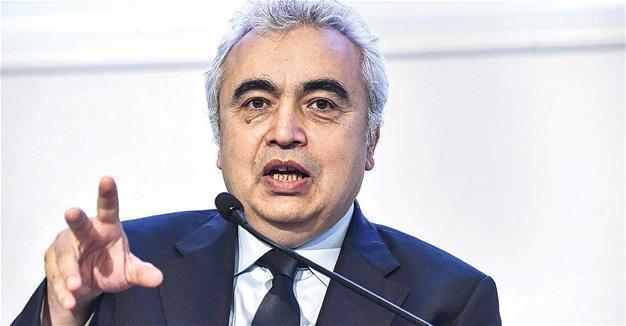Electric power poses no challenge to oil: IEA head
ISTANBUL-Anadolu Agency
 Global oil demand will continue to escalate despite slow growth resulting from the introduction of electric cars, according to the head of the International Energy Agency (IEA) on July 12.
Global oil demand will continue to escalate despite slow growth resulting from the introduction of electric cars, according to the head of the International Energy Agency (IEA) on July 12.“We think oil demand will continue to grow in the years to come, unlike some others who believe oil demand will peak and go down,” said the IEA Executive Director Fatih Birol at the plenary session on the sideline of the World Petroleum Congress, of which the Anadolu Agency is the global communication partner.
“Some people think because of the participation of electric cars, we will see the end of oil soon. We do not agree with this. We believe oil demand will continue to grow. It will grow maybe a bit slower than the past but it will continue to grow,” Birol said.
“We still need investment, we still need supply. We still need oil from OPEC, non-OPEC countries, the U.S., Brazil and Mexico. Otherwise, we will face difficulty,” Birol said.
The IEA chief said that although there were around two million electric cars on the roads throughout the world last year, electric car sales during the same period were less than one percent of all car sales.
Birol said oil demand was not originating from cars but was coming from trucks, ships, jets and the petrochemical industry.
“We don’t have any problem with energy – we have a problem with emissions. They are two different things,” said Birol, in response to the question of the impact of climate change on the energy sector.
At least 195 countries have signed the Paris Agreement in 2016 in an attempt to mitigate the effects of climate change by reducing carbon emissions and limiting the rise of global temperatures to below 2 degrees Celsius.
Birol said that up to the last three years, carbon emissions have seen annual increases in line with the global economy’s increase.
However, “in 2016, global emissions were flat, zero growth, even though the global economy increased more than 3 percent,” he said.
Birol said the U.S. was the country that reduced emissions the most last year.
“It is mainly shale gas replacing coal and making more use of renewable energies - wind and solar power,” he said.
According to Birol, the U.S. will continue to try to push emissions down by using more natural gas and making more use of other resources, including renewables and nuclear power.
“Climate change is important, a strategically important challenge for all of us,” he said.
“We need Europe, we need China, we need India, all of the countries to be part of a solution,” he added.
Speaking at the same session, Mohammad Barkindo, secretary general of OPEC also said he was “very optimistic” for the interests of oil producers and the global economy for the second half of 2017.
















